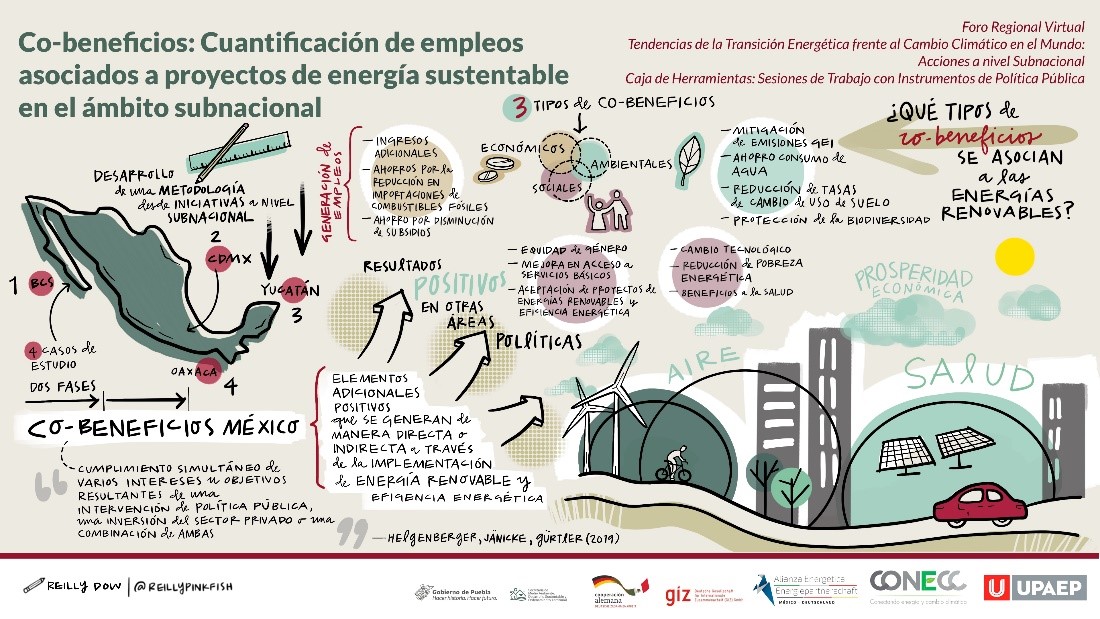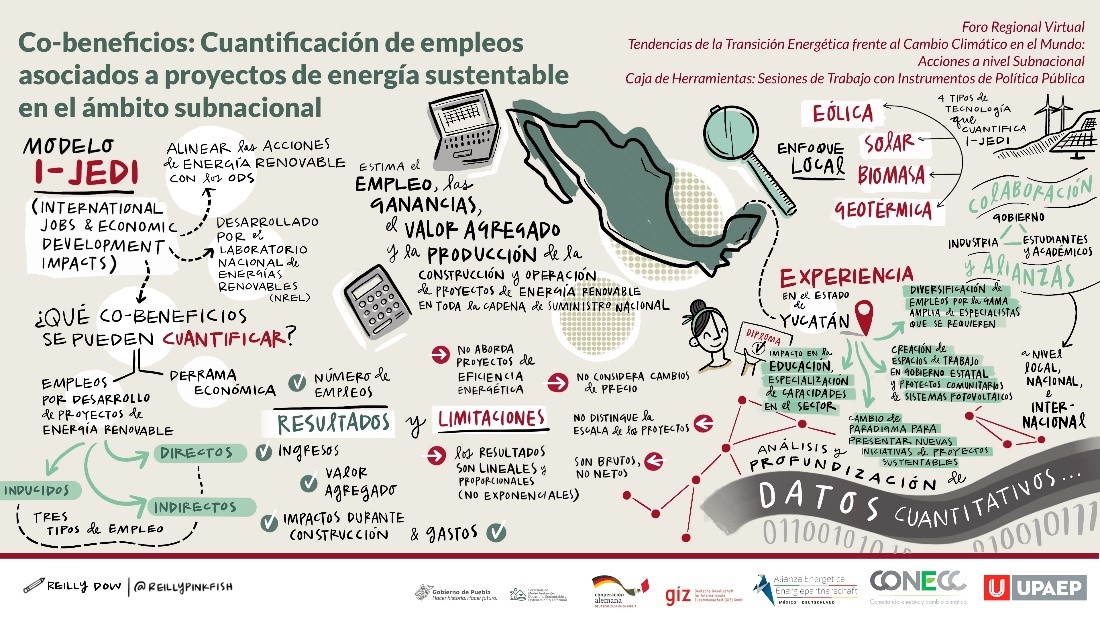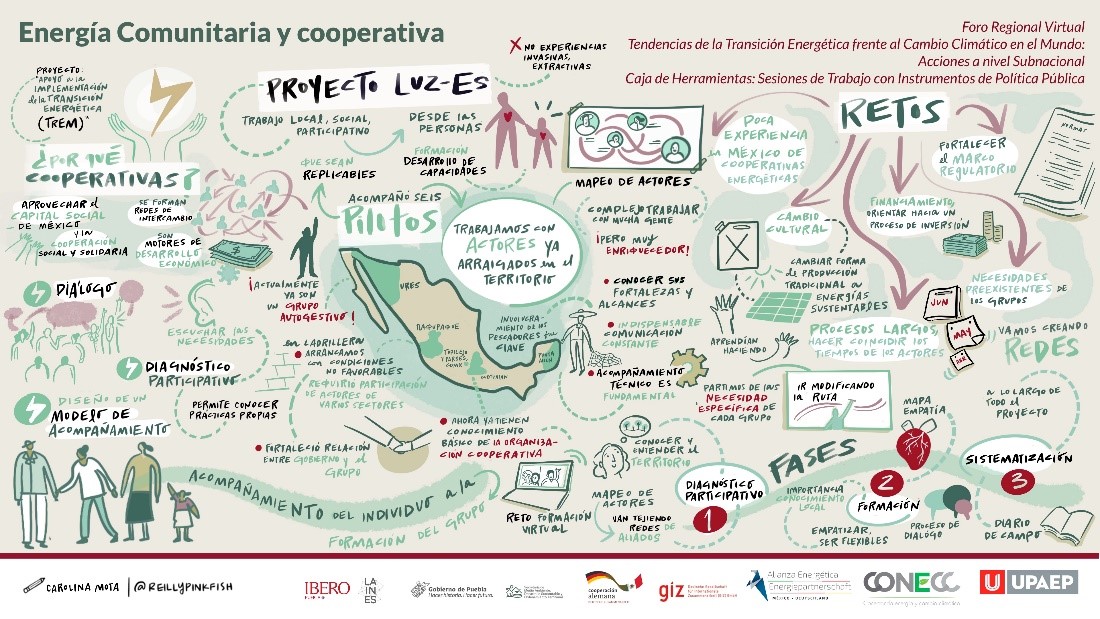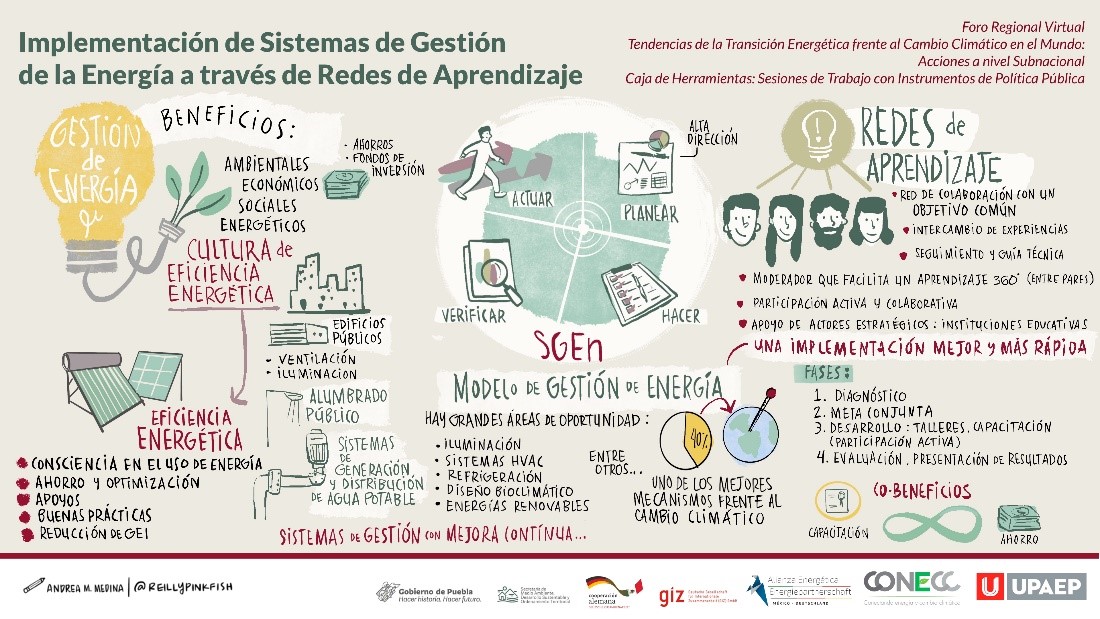Within the framework of the Virtual Forum “Energy Transition Trends in the Face of Global Climate Change: Actions at the Subnational Level” organised by the state of Puebla’s Ministry of the Environment, Sustainable Development and Territorial Planning (SMADSOT) and the Deutsche Gesellschaft für Internationale Zusammenarbeit (GIZ) GmbH, through the Mexican-German Energy Alliance (AE), the Webinar “Toolbox: Work Sessions with Public Policy Instruments” was developed. The event was held on August 19, 2021, with three simultaneous working tables looking at each of the three public policy tools applicable for the energy transition.
The “Socio-economic Co-benefits of Sustainable Energy” working table, developed by the project Enhancing the Coherence of Climate and Energy Policies in Mexico (CONECC), highlighted the importance of quantifying socio-economic co-benefits –such as employment– derived from the adoption of renewable energies and the impact at a subnational level. The conceptual and technical bases of the concept of co-benefits were shared, as well as the fundamentals of the International Jobs and Economic Development Impacts (I-JEDI) Model. The Ministry of Economic Development and Labour (SEFOET) also presented the results of the Yucatán government in the quantification of co-benefits. Decision-makers from different Mexican states participated in the workshop.


At the same time, a working table was held on “Distributed Generation – Community and Cooperative Energy”, led by the Support Program for the Implementation of the Energy Transition in Mexico (TrEM) and the Laboratory of Economic and Social Innovation (LAINES) from the Universidad Iberoamericana de Puebla: its focus was on the development of cooperative models of sustainable energy. This working table presented the development and methodologies of dialogue and participatory construction in the training and accompaniment to sustainable energy cooperatives in five states of Mexico (Sonora, Jalisco, Mexico City, Puebla, and Quintana Roo) as mechanisms of social participation in energy issues.

Por último, también se llevó a cabo una mesa de trabajo sobre “Implementación de Sistemas de Gestión de la Energía a través de Redes de Aprendizaje”, también conducida por TrEM, se centró en las ventajas de establecer un sistema de gestión para propiciar el uso eficiente de la energía y la mejora del desempeño energético, que puede ser adoptado por una organización sin importar sus dimensiones. A lo largo de la sesión se conversó sobre las oportunidades y los retos en la implantación de este tipo de modelos para mejorar el desempeño energético de organizaciones y gobiernos locales.

At the end of each session, the audience had the opportunity to talk and reflect on the content of the session, thus providing enriching feedback.
